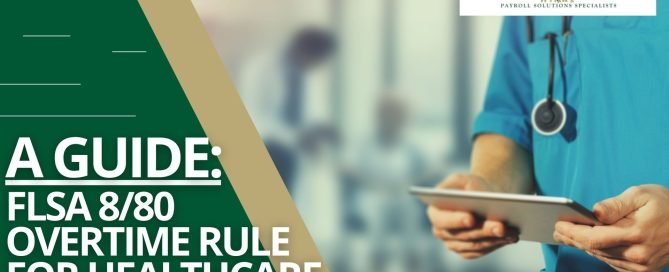Understanding the FLSA 8/80 Overtime Rule
The FLSA 8/80 overtime rule is a specific provision that allows healthcare employers to calculate overtime based on a work period of 8 hours in a day and 80 hours in a two-week period. This rule is particularly beneficial for healthcare workers who often have varying schedules and extended shifts, providing flexibility while ensuring they are compensated fairly for the hours worked beyond the standard limits.
Employers must understand the nuances of the 8/80 rule to ensure compliance and avoid potential legal issues. For instance, if a healthcare employee works 10 hours on one day and 6 hours on another, they would only be entitled to overtime for the hours exceeding 8 in a day. This knowledge is crucial for effective workforce management and maintaining employee satisfaction.
Benefits of Partnering with a PEO for Compliance
Partnering with a Professional Employer Organization (PEO) can significantly enhance a business's ability to comply with complex labor laws, including the FLSA. PEOs offer expertise in navigating the intricacies of employment regulations, ensuring that businesses remain compliant while focusing on their core operations.
By outsourcing HR responsibilities to a PEO, businesses can benefit from tailored compliance strategies, access to updated regulatory information, and risk management support. This partnership not only helps mitigate the risk of non-compliance penalties but also allows employers to provide better support to their employees, fostering a more productive workplace.
Common Misconceptions About Overtime Pay in Healthcare
There are several misconceptions surrounding overtime pay in the healthcare sector that can lead to confusion for both employers and employees. One common myth is that all healthcare workers are automatically entitled to overtime pay, regardless of their job classification or salary level. Understanding the specific criteria for overtime eligibility is vital for compliance.
For example, certain positions, such as registered nurses and other professionals, may be exempt from overtime under specific conditions. It’s essential for employers to educate their staff about these distinctions to prevent misunderstandings and ensure fair compensation practices are upheld within their organizations.
Strategies for Effective HR Management in Healthcare
Effective HR management in the healthcare industry involves implementing strategies that align workforce management with regulatory compliance and employee satisfaction. This includes developing clear policies regarding overtime, employee scheduling, and communication protocols to ensure that all staff members are informed and engaged.
Additionally, leveraging technology such as HR management software can streamline processes like payroll and compliance tracking, making it easier for healthcare organizations to manage their workforce efficiently. Regular training sessions on labor laws and best practices can also empower employees and foster a culture of compliance and accountability within the organization.


